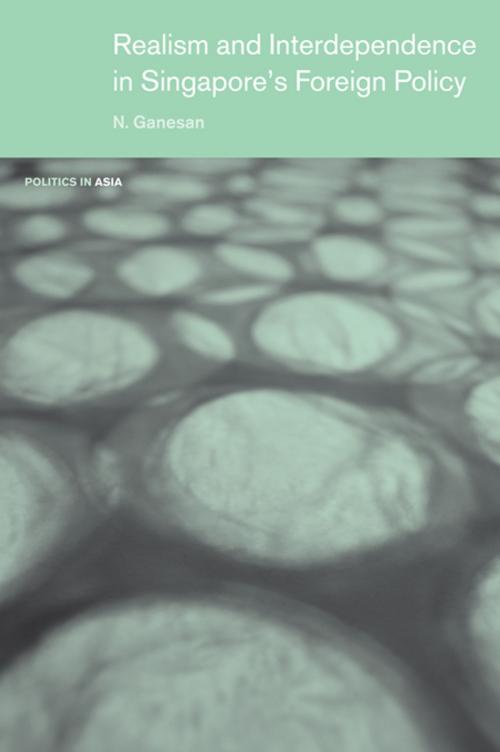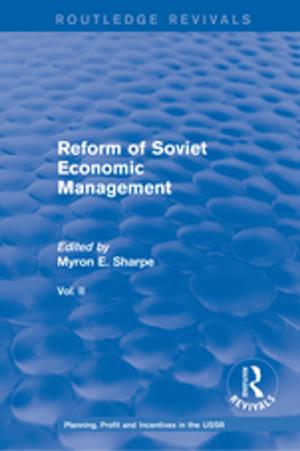Realism and Interdependence in Singapore's Foreign Policy
Nonfiction, History, Asian, Southeast Asia, Social & Cultural Studies, Political Science, International, International Relations| Author: | Narayanan Ganesan | ISBN: | 9781134267507 |
| Publisher: | Taylor and Francis | Publication: | October 18, 2005 |
| Imprint: | Routledge | Language: | English |
| Author: | Narayanan Ganesan |
| ISBN: | 9781134267507 |
| Publisher: | Taylor and Francis |
| Publication: | October 18, 2005 |
| Imprint: | Routledge |
| Language: | English |
Singapore’s existence and success derive in part from its achievements in the domestic political arena and in part from the skilful management of a well-defined foreign policy with clearly identifiable goals and issues. A visible core of realist self-reliance is layered with the demands of a competitive trading state that requires a liberal international trading regime. Hence, both competitive and cooperative philosophies support Singapore’s foreign policy.
This text charts the philosophical underpinning of Singapore’s foreign policy output and the institutions responsible for it and examines the importance of economic and defence diplomacy that are central to Singapore’s foreign policy output. It gives particular attention to the two most important regional bilateral relationships -- with Indonesia and Malaysia -- and how relations with its adjacent neighbours have influenced Singapore’s foreign policy. Combining first-hand research with excellent analysis, this volume provides a much-needed report on the survival of a small state in the globalizing world.
Singapore’s existence and success derive in part from its achievements in the domestic political arena and in part from the skilful management of a well-defined foreign policy with clearly identifiable goals and issues. A visible core of realist self-reliance is layered with the demands of a competitive trading state that requires a liberal international trading regime. Hence, both competitive and cooperative philosophies support Singapore’s foreign policy.
This text charts the philosophical underpinning of Singapore’s foreign policy output and the institutions responsible for it and examines the importance of economic and defence diplomacy that are central to Singapore’s foreign policy output. It gives particular attention to the two most important regional bilateral relationships -- with Indonesia and Malaysia -- and how relations with its adjacent neighbours have influenced Singapore’s foreign policy. Combining first-hand research with excellent analysis, this volume provides a much-needed report on the survival of a small state in the globalizing world.















